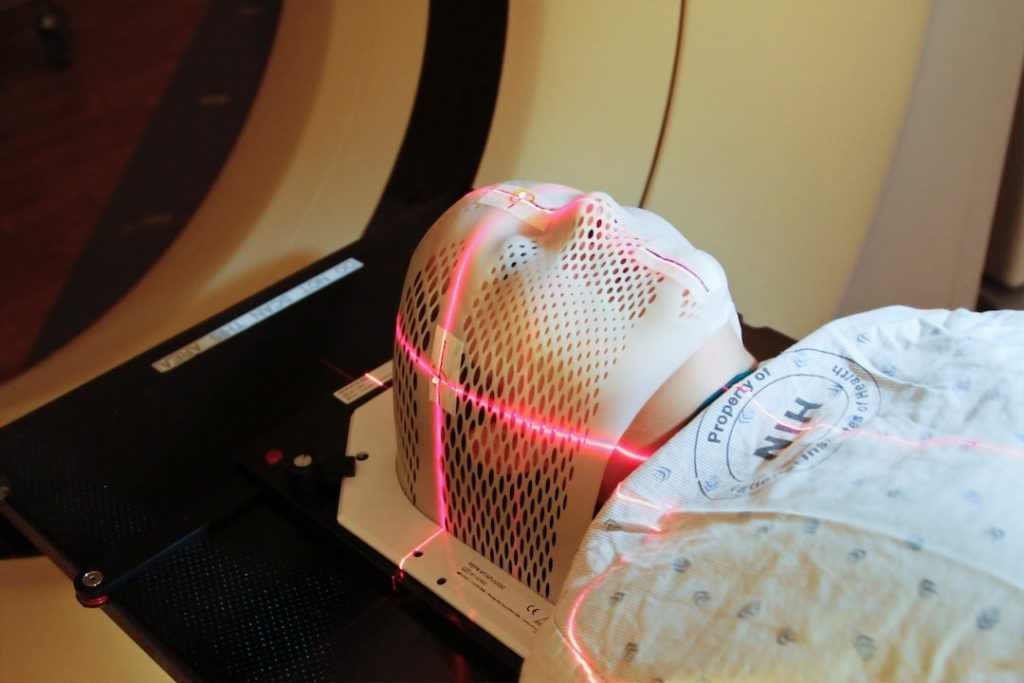As more research develops in mental healthcare, new treatments have been proven to improve clients’ mental health disorders and symptoms. By directly focusing on the brain’s neuroplasticity, new emerging research and ideas have altered how mental health is treated in the modern world.
In order to restructure the brain itself using these concepts, various treatments have emerged. These include transcranial magnetic stimulation (TMS), eye movement desensitization and reprocessing (EMDR), and incorporating small doses of psychedelic use.
This breakthrough in mental health allows clients’ treatments to produce quicker results, improving their lives at a faster pace. The goal of Roots Recovery is to support our clients in creating a more fulfilling life not defined by their mental health. With new treatments and research evolving, this process is quicker and more attainable, yielding better results.
What Is Transcranial Magnetic Stimulation?
TMS is a noninvasive way of stimulating the brain. This process produces long-term, positive results for mental health, seen as a therapeutic tool. Typically this treatment is the most recommended for those with depression or obsessive-compulsive disorder (OCD).
Those with magnetic implants or a recent adverse neurological or cardiac event are restricted from this treatment. Likewise, this treatment is recommended to those of elderly populations due to the lack of cognitive side effects and a lesser chance of drug interactions.
In recent years, the stimulation aspect of this treatment has advanced, becoming more detailed and exact. Due to this, the magnetic field is more concentrated and enacts better control. In the past, this process took about 37 minutes to complete. With emerging research and advancements with TMS, the stimulation and process last only a few minutes. This improves comfort among clients.
The stimulating pulses have proven to correct the functioning of cells and aid their healing when impaired. In a repetitive process, TMS over an individual’s treatment course leads to improved mental health symptoms and overall better clinical effects.
While undergoing TMS, it is recommended that clients log their symptoms and experiences, measuring their progress (or lack thereof) on a personal level. Aside from depression and OCD, TMS may find its role in treating migraines, anxiety, post-traumatic stress disorder (PTSD), and substance use disorders (SUDs). For chronic schizophrenia, more research is being conducted to see the effects TMS has on controlling intractable hallucinations and other negative schizophrenic symptoms.
Roots Recovery and TMS for Mental Health
At Roots Recovery, TMS is implemented into the treatment plans of clients with depression. The magnetic field administered occurs in short pulses to parts of the brain affiliated with depression, areas that are underactive. By stimulating these neurons, changes improve depressive symptoms.
The treatment is set in place for about 19-37 minutes, five days a week. This lasts for about four to six weeks. This therapy service is safe, tolerable, chosen by psychiatrists, and FDA-cleared and approved to fight depression.
What Is Eye Movement Desensitization and Reprocessing?
EMDR is a therapy used to treat PTSD by reducing a client’s symptoms and other trauma-related symptoms. This is part of the psychotherapy approach to mental health recommended by the World Health Organization (WHO) to treat trauma.
When EMDR is led by experienced therapists, and the session lasts 60 minutes or more, better results are produced. Due to the lack of research in children and adolescent EMDR treatment, this therapy is a service recommended mainly for adults with PTSD or other symptoms related to trauma.
Roots Recovery and EMDR for Mental Health
Often the brain processes traumatic events inadequately, leading to negative mental health symptoms and, eventually, mental health disorders. At Roots Recovery, EMDR occurs in a series of repetitive, back-and-forth eye movements for 20-30 seconds.
Therapists consider this “dual stimulation,” where the client stimulates the brain with these eye movements and simultaneously recalls a traumatic event and memories. When these memories are recalled, EMDR replaces adverse emotional reactions that surface with less-charged and eventually positive reactions or beliefs.
How Are Psychedelics Useful for Mental Health Treatment?
Over time research on psychedelics has proven that these substances have overlapping effects on behavior and the mind. They have an impact on how an individual perceives the external world as well as their own concept of their role in the world.
Psychedelics have also been shown to influence mood, manage stress, and impact memory and social functioning. In turn, paired with further research, psychedelics – psilocybin and MDMA, specifically – may have therapeutic effects on clients in mental health treatment. Psychedelics work to ease the mind, putting those who use this treatment approach in a relaxing and therapeutic mindset.
At Roots Recovery, when paired with other brain-focused treatments, such as TMS or EMDR, producing more positive emotions attached to negative mental health symptoms is enhanced. Psychedelics quicken this process, allowing clients to go through treatment in a less stressful and overwhelming way.
At Roots Recovery, we implement new and modern mental health research into our therapies and services. Transcranial magnetic stimulation (TMS), eye movement desensitization and reprocessing (EMDR) therapy, and psychedelics are three modern approaches to mental health treatment. TMS and EMDR stimulate your brain, allowing you to recall traumatic events or negative symptoms and approach them in a more positive way. These two services are enhanced with the use of psychedelics. By using low dosages of these substances, you can experience relaxation, which allows you to be at ease. In turn, this positive state of mind also enhances the work of TMS or EMDR. Call Roots Recovery at (562) 473-0827 to learn more about our program.



